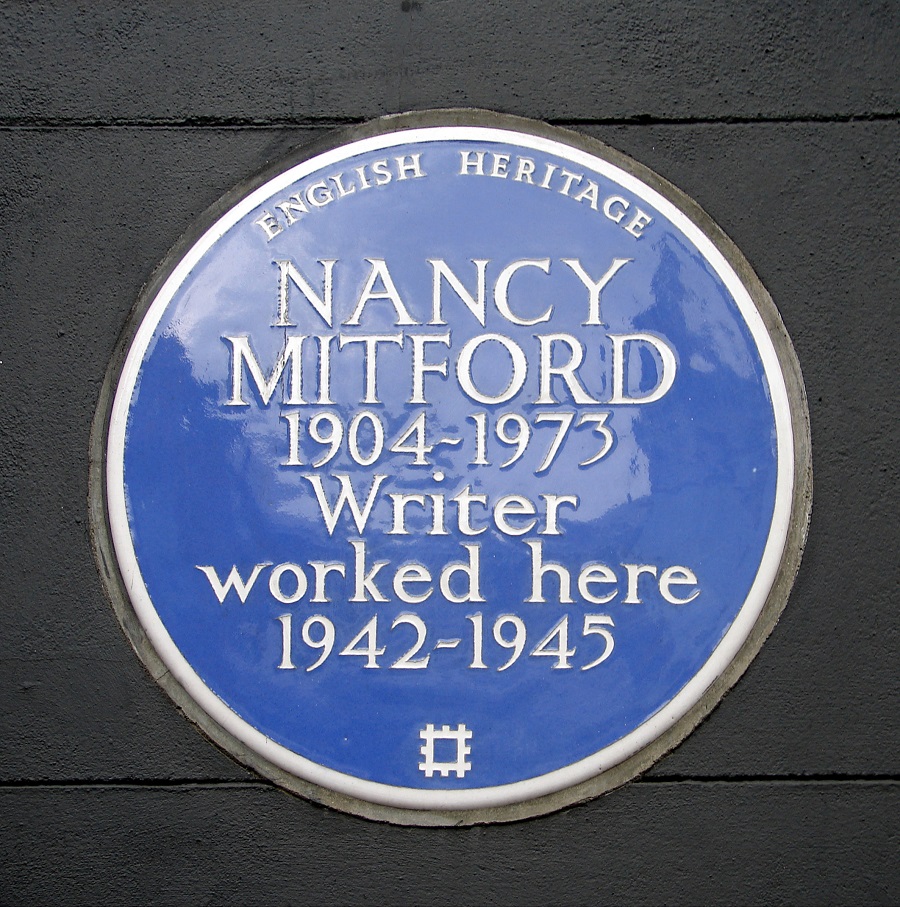Long car journeys will always mean Nancy Mitford to me. To preserve their sanity on a three-hour weekly round trip down the M4 with two small children, my parents tried every audiobook they could lay their hands on. At some point we discovered Love in a Cold Climate. On the face of it, a plot largely based on sex scandals was an odd choice for under tens. But strangely enough, of all the writers I was exposed to in the back of that Renault, it is Mitford who has stayed with me. As Prunella Scales’ drawl rumbled through the car like boozy steam off a Christmas pudding, the wasted hours magically lost their tedium.
In my memory, the grey drizzle of the M4 catches the sparkle of Cedric’s diamond studded turban, the hedgerows hide a pack of mud splashed, child-chasing bloodhounds and the heavy cloud morphs into white panels of floating taffeta. I roll unfamiliar words round my mouth like strange sugary sweets: “chub fuddler”; “lecherous lecturer”; “rampant vulgarity”. I imagine eating kippers at a weekend house party, wearing green velvet and silver to dinner, falling in love and falling out of it. And most of all I remember laughing. Because Nancy Mitford is one of the funniest writers ever to have put fountain pen to paper.
There is a wickedness to her humour that can’t be resisted. Take The Pursuit of Love’s heroine Linda’s throw away comment about her Communist friends: “Just at the moment he’s writing a book on famine—goodness! It’s sad—and there’s a dear little Chinese comrade who comes and tells him what famine is like, you never saw such a fat man in your life.” In a single detail, playing on the trope of the entitled upper classes trying to speak for the suffering millions, Mitford manages to make an entire political movement look idiotic.
Authentic English aristocrat as she was, Mitford recognised the absurdity of her world and mocked it with merciless glee. Like Dickens, she had a knack for noticing small eccentricities and translating them into defining characteristics. The result is a magnificent cast of characters hovering just the right side of credibility. “Wonderful old” Lord Montdore who might just as well have been made out of “wonderful old cardboard”, Davey who believes in getting drunk as “challenge to the metabolism” and Uncle Mathew, who wages guerrilla warfare against his housemaids but weeps over sentimental songs.
Mitford is deeply unfashionable, dismissed as a writer twentieth century chick-lit with inane romance plots that never extend beyond the ballroom into the real world. But these detractors can’t have read her work very thoroughly. The opening page of The Pursuit of Love has an underlying note of melancholy as “the minutes, the days, the years, the decades take [the family] further and further from the happiness and promise of youth”. It is not difficult here to draw a connection between the fictional Radlett family and Nancy’s own. Often remembered simply for their eccentricity, the real tragedy of the Mitfords, torn apart by political and sexual scandal, is surely present in the despondency of these lines.
Mitford is often written off as frivolous simply by virtue of being so funny. But there is nothing surprising in the idea of comedy and tragedy existing in close relation. Linda’s story has notes of the tragic bored by one husband, abandoned by another, she finally finds love only to have it snatched cruelly away.
Yet you would never think of Linda as a tragic heroine. She is far too ready to treat her life as an elaborate joke, heedless of reality. In this she is rather like her creator, who wrote her great love Gaston Palewski into her works, only altering the fact that the fictional Palewski returns Linda’s love whereas the real Palewski never did return Mitford’s. She turned her personal tragedy into a bitter literary joke for generations to enjoy.
She is the voice of a lost world, glamorising debutantes and duchesses and then corroding them with her acid observations. When you read a Mitford novel you are only ever a couple of sentences away from laughing out loud but perhaps more interestingly from profound sadness. She mixed tragedy and comedy in her own creative cocktail and then tossed it back like the true party girl she was. Read her to laugh or read her to cry but whatever you do, read Nancy Mitford.



